At Barratt Redrow we believe in the importance of play for all. We’re making a landmark commitment to prioritise inclusive play spaces across all our developments.
Our findings
We’ve commissioned new research which has revealed that children with disabilities are locked out of playgrounds, with half of parents surveyed saying their child is excluded from play.
Parents of children with physical disabilities are travelling an average of 5.37 miles from their homes to reach a suitable play area. As a result, 51% say they are relying more on screens because there are not enough suitable outdoor play areas nearby.
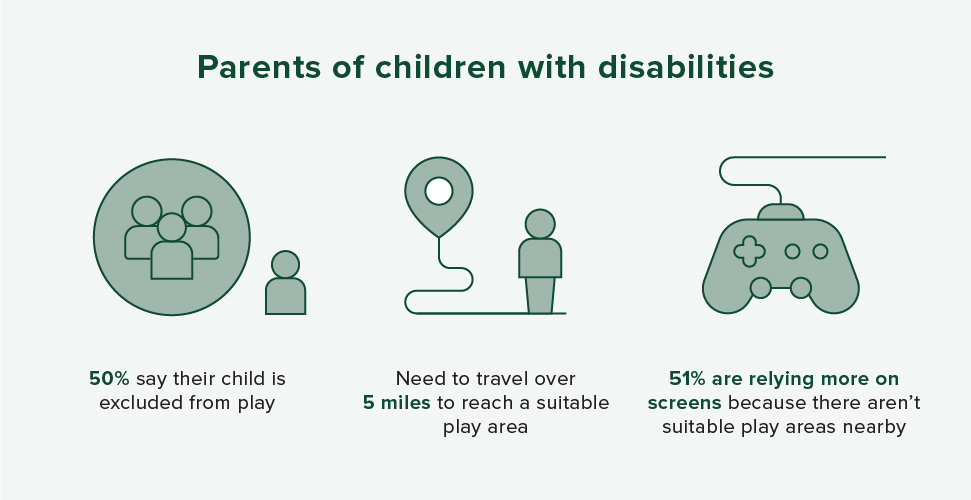
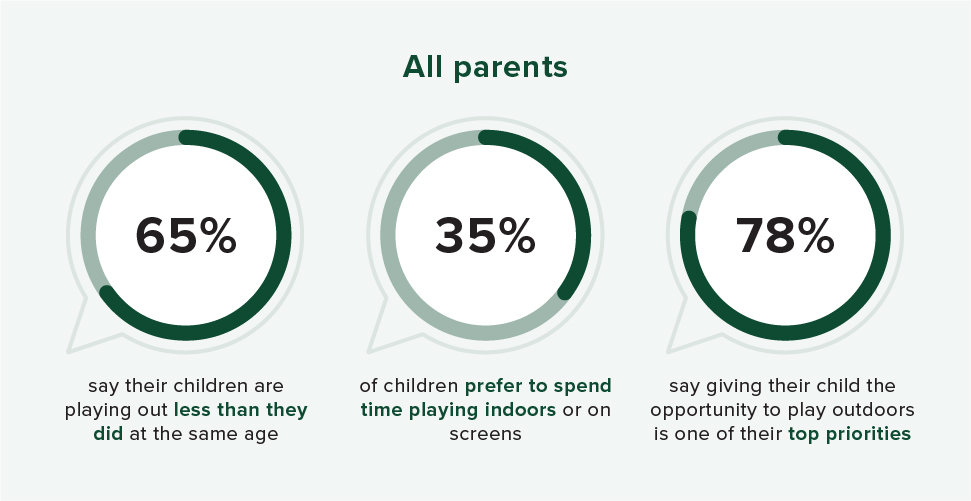
Play for every body
We’re taking a stand for play. As the biggest housebuilder in the country, we’re leading the charge to make outdoor play truly inclusive. We’re not just influencing playgrounds, but the way all new developments are built, ensuring that inclusive and accessible spaces become the standard, not the exception.
Through community action and industry advocacy, we’re inspiring families, local authorities and other housebuilders to prioritise play for every body.
Take a look at our launch film below:
Our commitment
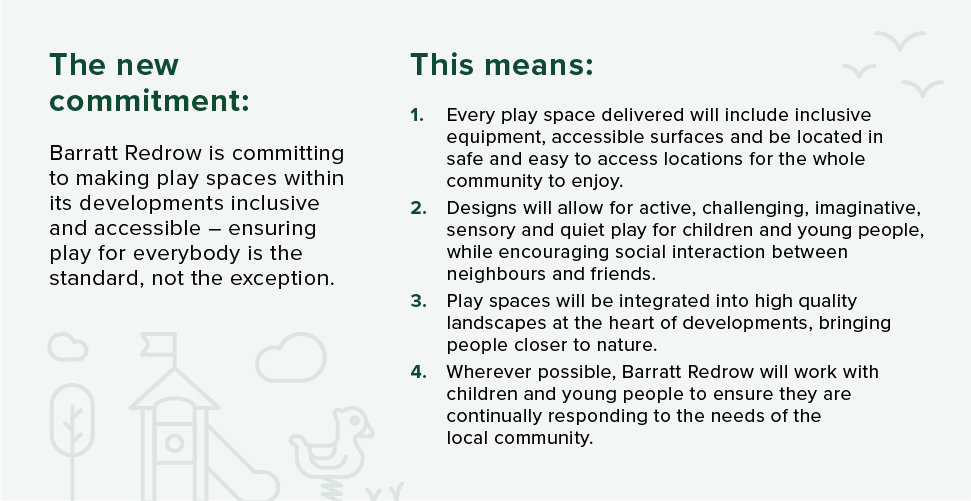
*Our teams work on planning applications for a period of six months before submission, therefore the new commitment will apply to all new planning applications from January 2026 onwards.
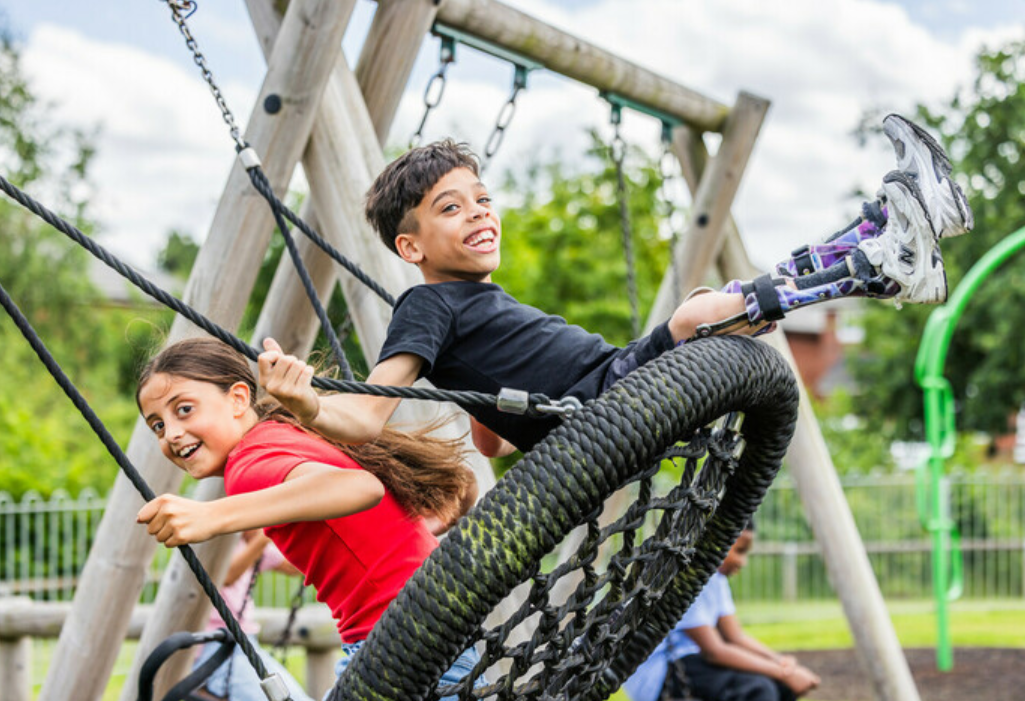
The play off: mental health concerns grow
The consequences of children being excluded from play are significant. Parents report rising rates of social isolation, anxiety, and difficulty making friends. Nearly half say the lack of outdoor play is directly affecting their child’s physical fitness (46%), motivation to exercise (45%), and increased social anxiety (45%).
Nearly three-quarters of parents (72%1) believe this kind of exclusion could have long-term impacts on their child’s mental health.
As well as impacting children, the challenge to play out is impacting parents too. Majority (78%1) say giving their child the opportunity to play outdoors happily and safely is one of their top priorities, however 38%1 say the state of play is impacting negatively on their own mental health, and a further third (33%1) say it’s disrupting their relationship with their partner. And as concerns about screentime mount, 64%1 say they are actively trying to reduce their child’s screen time, but admit they struggle for inspiration.
1 The research was conducted by Censuswide, among a sample of 2003 Parents of children between 4-17 (parents aged 19+). 500 with physical disabilities and 270 who have neurodivergent disabilities. The data was collected between 09.06.2025 - 18.06.2025.
Censuswide abides by and employs members of the Market Research Society and follows the MRS code of conduct and ESOMAR principles. Censuswide is also a member of British Polling.
To find your nearest accessible playground visit: www.pipa-play.org/pipa-map
Behind the play gap:
Lettie is a bright and imaginative 9-year-old from Selby who faces a daily frustration — the lack of accessible playgrounds.
As a wheelchair user, Lettie finds that her local village park offers nothing she can safely or independently use. While other children look forward to playing at the park, Lettie often chooses to stay home, knowing there's little there for her. When she does attend social gatherings at the park, her family brings alternative activities like painting, since she’s unable to use most of the equipment her peers enjoy.
To give her the chance to play, Lettie and her mum now travel seven miles to a neighbouring village that has more inclusive facilities, including a wheelchair-accessible roundabout and swing. Although the swing still requires someone to lift her into it, Lettie calls it her favourite part of the visit.
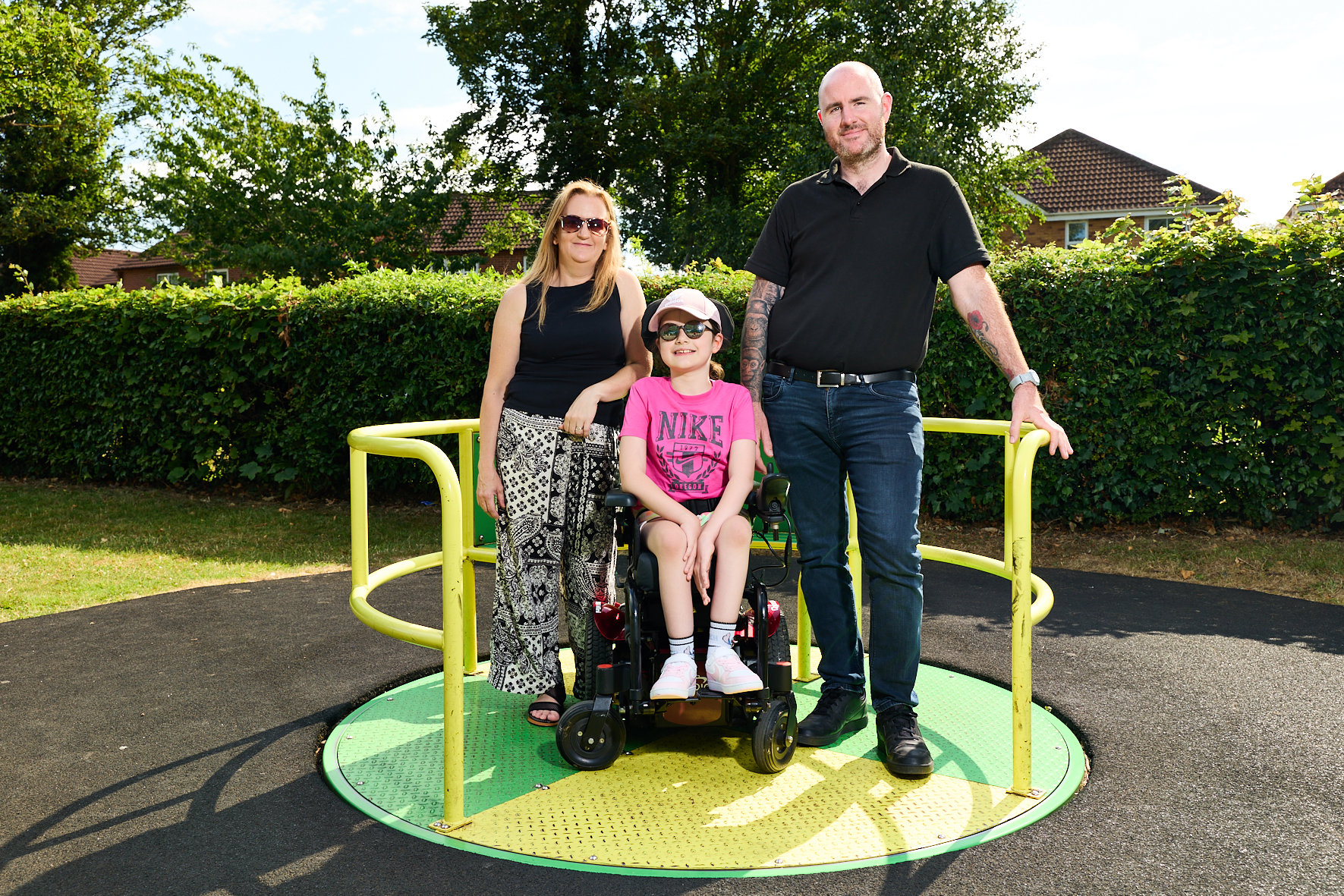
Her mum, Jessica, works as a clerk for several local parish councils. She’s seen first-hand how difficult and costly it can be to adapt existing playgrounds and strongly believes that accessibility should be part of playground design from the beginning. While grateful for the accessible equipment in the neighbouring village, Jessica knows it shouldn’t require a car journey just to give her daughter the chance to play like any other child.
Barratt Redrow Inclusive Play Manual
We want to share our new guidance on play spaces as widely as possible. To find out more about our approach towards creating inclusive and accessible play spaces across our developments, download a copy of our Inclusive Play Manual below.
Playmaking competition
We’re calling on the next generation of play experts to share their creativity and help design playgrounds that inspire imagination, and fun.
The Junior Playmakers competition is open to children aged 7-14 all across the UK during the school holidays. Budding designers are invited to submit drawings of their dream inclusive play area, suitable for children with all abilities, with the chance to see their ideas brought to life in communities across the country.
To enter, send your child’s playground drawing to: [email protected]



